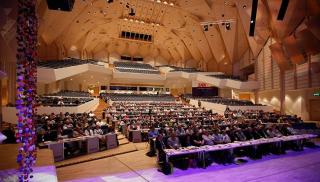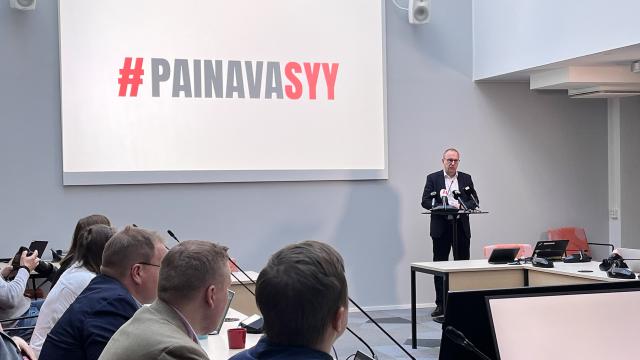SAK reorganises
The Congress will begin with a motion to amend the organisation’s constitution so that SAK is governed in future by a delegate council that meets twice annually. This will enable the organisation to take major policy decisions more quickly.
“The constitutional amendment is a major aspect of reforming SAK. A delegate council is a more agile policymaking body than a congress in a rapidly evolving world,” explains SAK Administrative Director Eija Hietanen, who is responsible for preparing the 19th Congress.
Based on the present size of the organisation, the new delegate council to be elected at the Congress will have 129 members. Representation on the council will be proportional to the individual membership of the affiliated union. The present Congress has 259 representatives from 20 trade unions.
The Congress will also elect a new SAK Executive Board. The proposed constitutional amendment will slightly reduce the size of the Executive Board.
SAK President to change
The 19th SAK Congress is due to elect a new President for Finland’s largest employee confederation, with the 63 year-old incumbent Lauri Lyly stepping down at the end of the event. Mr Lyly was elected in 2009.
Only one presidential candidate has so far been nominated to replace him: Jarkko Eloranta MSc is currently President of the Trade Union for the Public and Welfare Sectors JHL. He has long experience of working in NGOs, and has also held fiduciary positions in international labour movement organisations, such as the EU Working Party of Finnish Public Services Unions’ (FIPSU), the European Public Service Union (EPSU) and Public Services international (PSI).
Towards the digital age and more comprehensive employment
On Tuesday the SAK Congress will consider changes in the world of work and their impact on the lives of employees in a seminar on Good Work in the Digital Age that is part of a series of SAK discussions entitled A Time of Opportunities. Aside from the effects of digitalisation, these discussions will also consider the labour market impacts of globalisation, climate change and the depletion of natural resources.
The SAK Congress will also release a position statement specifying the principles that will guide the organisation’s work over the next few years. This Stepping Stones to the Future programme document will consider the importance of work-based social security in the context of a welfare state, and focus on ways of making more work available to people of all ages and working capacities.
News
 The Central Organisation of Finnish Trade Unions
The Central Organisation of Finnish Trade Unions


